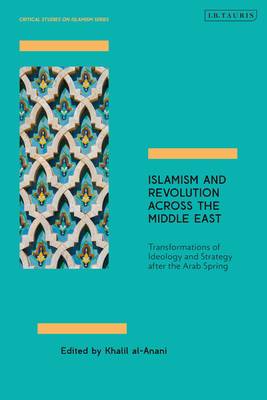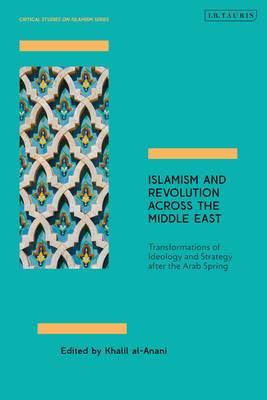
- Afhalen na 1 uur in een winkel met voorraad
- Gratis thuislevering in België vanaf € 30
- Ruim aanbod met 7 miljoen producten
- Afhalen na 1 uur in een winkel met voorraad
- Gratis thuislevering in België vanaf € 30
- Ruim aanbod met 7 miljoen producten
Zoeken
Islamism and Revolution Across the Middle East
Transformations of Ideology and Strategy After the Arab Spring
€ 69,45
+ 138 punten
Omschrijving
Why did Islamists respond so differently to the Arab Spring? What do these different responses tell us about Islamists' ideological commitment and resilience, or the contexts within which they were functioning?
This book is based on fieldwork on Islamists in eight Middle Eastern countries: Egypt, Tunisia, Libya, Morocco, Yemen, Jordan, Kuwait and Syria. The contributors trace the transformation of the Islamists' ideology, behaviour, and strategy since the beginning of the Arab Spring. The aim of the book is to show that Islamists necessarily have an interactive and dialectical relationship with the environments in which they find themselves, and that their behaviour and political calculations are based on a wide range of local, regional and global factors. They take into account the impact of the different contexts the groups found themselves in from authoritarian to open and reformist, and contexts of armed conflict and civil war. An interdisciplinary project, the book captures the ongoing transformation of Islamist parties to explain the reasons why some movements could adapt and make shifts in their discourse and strategy, maintaining organizational coherence and unity, while others fell short and suffered major splits and schisms. The robust theoretical findings update existing literature on Islamism and advance the state of the field.Specificaties
Betrokkenen
- Uitgeverij:
Inhoud
- Aantal bladzijden:
- 184
- Taal:
- Engels
- Reeks:
Eigenschappen
- Productcode (EAN):
- 9781838606282
- Verschijningsdatum:
- 23/03/2023
- Uitvoering:
- Paperback
- Formaat:
- Trade paperback (VS)
- Afmetingen:
- 156 mm x 234 mm
- Gewicht:
- 267 g

Alleen bij Standaard Boekhandel
+ 138 punten op je klantenkaart van Standaard Boekhandel
Beoordelingen
We publiceren alleen reviews die voldoen aan de voorwaarden voor reviews. Bekijk onze voorwaarden voor reviews.






